One hundred years ago today, the United States ratified the 19th Amendment, granting women—in theory—the right to vote.
In reality, access to the polls for women has been a 200-year effort. The temperance leagues in the 1820s where women pushed for both abolition and their own political power and the 1848 Seneca Falls Convention, where the movement for the right to vote went national, were only the beginning of the push for voting rights.
While women now have the constitutional right to vote, there has been no shortage of voting restrictions aimed to prevent them from doing so. Black women faced restrictions on voting rights until the passage of the Voting Rights Act in 1965—and, some say, still do. Native American women and Asian-American women also faced restrictions on voting rights until well into the 20th century. Even the right to vote for white women faced pushback relatively recently: Mississippi didn’t agree to ratify the 19th Amendment until 1984.
On the centennial of the 19th Amendment, celebrations—thanks to the coronavirus pandemic—won’t be as expected. The anniversary still arrives amid another kind of milestone: More women than ever in history are running for Congress in 2020.
On this 100-year anniversary, Fortune asked activists and community, political, and business leaders to tell us what the 19th Amendment means to them. Below, read what they have to say, from the achievements of the suffragists to the work that remains to be done.
Erin Brockovich, activist
“I am not going to stand here and be grateful, like the right to vote was some gift handed down to us. You didn’t give women the right to vote, you corrected your mistake in ever denying us. That being said, now that we have the power to vote, we need to use it. There is no excuse for not voting. Women suffered in this battle, we owe them that respect, we owe them our voice.”
Crystal Echo Hawk, founder of IllumiNative

“The ratification of the 19th Amendment was an amazing moment and inspirational milestone for women—but not for all women. I am a Pawnee woman, and like all Native women, the ratification of the 19th Amendment did not include our right to vote. Native peoples were not granted full citizenship by the U.S. government until 1924, and even then, Native communities were not guaranteed the right to vote in every state until 1958—a full 34 years after the 19th Amendment.
“The efforts to suppress the vote of Native peoples is not part of the past, it continues today. Just a few months ago, Tribal governments and leaders in North Dakota were in a legal battle with the state over the passage of oppressive voter-identification laws that placed undue hardships on many Native residents living on reservations. The right to vote is only possible if it is possible to vote. Voter-suppression attempts must be remedied before this pivotal election.
“Our vote is fundamental to protecting our future and ensuring our interests are represented in this country. In 2018, Native women were elected to Congress for the first time when Rep. Sharice Davids (the Ho-Chunk Nation) and Rep. Debra Haaland (Pueblo of Laguna) made history. While we celebrate the momentous occasion of women being granted the right to vote, we must also reflect on the work needed to ensure gender and racial equality. We are not free until everyone is free.”
Melinda Gates, cochair, Bill & Melinda Gates Foundation
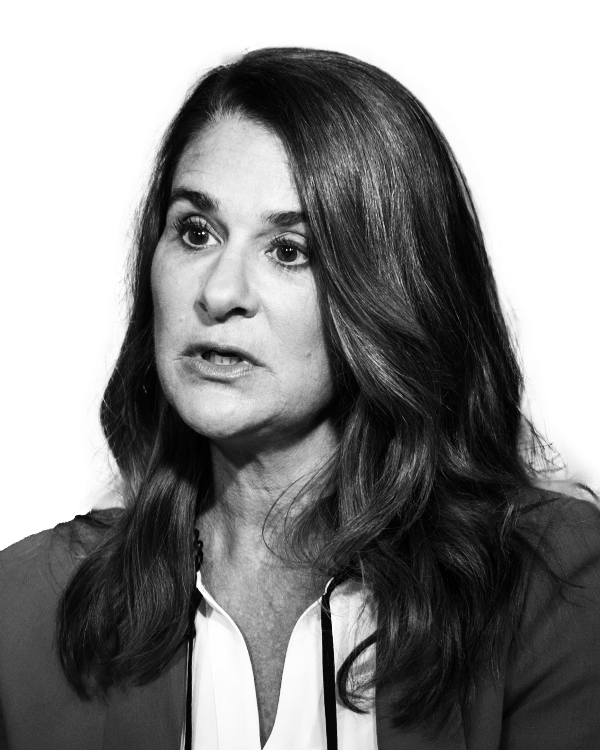
“As milestones go, the passage of the 19th Amendment was as incomplete as it was important. On the one hand, it was this historic moment when a country founded on the principle that ‘all men are created equal’ finally made room in that vision for women, too. On the other, it only made room in that vision for some women. The 19th Amendment didn’t guarantee women’s right to vote; it guaranteed white women’s right to vote. And so even as we commemorate this milestone, it’s crucial that we acknowledge its complexity.
“One way I’ve been grappling with this history is by reading more about the Black women activists who were unsung heroes in the movement for women’s voting rights. For every suffragist like Susan B. Anthony whose name we know, there are so many more whose names we don’t—including Black women like Mary Church Terrell and Frances Ellen Watkins Harper. Their erasure from the narrative was no accident. The reason many of us learned at school to picture a white woman when we think of a suffragist is that white suffragists wanted it that way. They were very deliberate about the image they cultivated and about making sure that image had a white face.
“Restoring Black women to their rightful place in the narrative of the 19th Amendment will help us better understand our history—but I also hope it will call us to action. There’s a lot of excitement around the fact that Kamala Harris is the first Black and South Asian woman on the presidential ticket, but the very fact that it’s so newsworthy proves we still have a lot of work to do. I hope that 100 years from now, we have many more milestones to celebrate.”
Barbara Hackman Franklin, former secretary of commerce
“The 19th Amendment and the right to vote are very precious to me, and this celebration is hugely personal. Having the vote enabled and encouraged women—like me—to participate in politics and government at the highest levels. That ability to participate enabled me to serve five U.S. Presidents and serve as the second woman Secretary of Commerce.
“Now there is more work to do. Women account for half the U.S. population but are not similarly represented in leadership roles. I firmly believe that more women in governmental leadership would make our society and, indeed, the world a better, more just, prosperous, and safer place. Today, a new generation of women must fulfill the 19th Amendment’s promise: more women in leadership—and, at last, a woman President of the United States.”
Katie Hill, former congresswoman
“I wrote , thinking a lot about the 19th Amendment: how far we’ve come in the last hundred years, and how much work there is still left to do. In many ways, the work we have left to do is the entire reason I wrote the book. Alice Paul, one of the leaders of the women’s suffrage movement, said shortly after it was ratified, ‘It is incredible to me that any woman should consider the fight for full equality won. It is just beginning.’ I don’t know where she thought we’d be in the fight 100 years after that historic victory. But as far as I’m concerned, we haven’t come nearly far enough. We can’t afford to let another hundred years go by before we get there. And if we don’t fight now, we might even go backward.
“In many ways, the work now needs to be focused on dismantling misogynistic institutions, redirecting resources and authority to young women, and working to install them in positions of power. If I had to boil it down to just one solution to the inequality and sexism women face every single day that stands in our way of being fully autonomous and having the ability and opportunity to access power, it would be this: Elect women because they are women. That is the focus of my work in this next chapter of my life, and the work that all of us need to do, together, to finally achieve the equality we all deserve.”
Maria Teresa Kumar, CEO, Voto Latino
“Even after passage of the 19th Amendment, discrimination, intimidation, poll taxes, and spot literacy tests kept Latinas from voting. And even though the Voting Rights Act of 1965 ensured that people couldn’t be denied the right to vote just because they couldn’t read, write, or understand English, Latinas still faced discrimination at the polls, and so many didn’t vote. It wasn’t until 1975 for ‘language minority’ Latinas’ voting rights to be protected—or so it seemed.
“Latinas will still have to jump hurdles to cast their ballot in 2020. Since they earn half what men do, they work twice as long and hard, leaving little time to vote. Domestic workers are ‘taxed’ much the same way. When half of all Latinos have been laid off or had their hours reduced since the pandemic began, earning money to feed their kids is the top priority, not voting. One hundred years later, we still have a lot of work to do.”
Rep. Carolyn Maloney (D-N.Y.)
“I am elated to mark the centennial anniversary of the 19th Amendment in the same year as Virginia’s historic vote on the Equal Rights Amendment. The aligning of these two events clearly show both how far we have come and where we are fighting to go. The reasons why we need the ERA have become even more apparent in the last year. Women are leading their communities at every level across the country; they deserve more than the 19th amendment. Everyone deserves the ERA—a constitutional amendment that lives forever—and I have faith that we will get it.”
Ai-jen Poo, cofounder of Supermajority and senior adviser to Care in Action
“On the 100th anniversary of the 19th Amendment, which gave women the legal right to vote, we have an opportunity to reflect on how far we have come, but we’re also faced with the reality of the work that still lies before us. It’s apt that this anniversary falls in the same year we see a woman—and a woman of color—move closer to representing us in the executive office.
“Today, 100 years since the 19th Amendment was passed, we still see acts of voter suppression seeking to keep these voters from the polls, in particular for the upcoming, critical presidential election. We are in a moment of upheaval and uncertainty that highlights the inequities that continue in our society and economy. Domestic workers, who do the work that makes all other work possible, are finding themselves on the front lines of the pandemic: caring for our loved ones who are elderly or disabled, caring for our children, and cleaning our homes. These workers we rely on—and have always relied on—are among the most vulnerable. These women support us. Not all of them can vote; we must vote to protect them and their rights.”
Cecile Richards, cofounder of Supermajority and former president of Planned Parenthood

“Growing up in Texas, women holding elected office were rare. My mother, who somewhat miraculously was the first woman elected governor in her own right, used to say that on the campaign trail she felt like the two-headed pig at the county fair: Folks came out just to see what a future woman governor looked like. Women who beat the odds in Texas included the late great Barbara Jordan, from Houston. Barbara was the first Black woman from the South to go to Congress. She transfixed the nation as a member of the House Impeachment Committee, for many, the voice of the conscience of our nation. Mom and Barbara would later become fast friends and political allies, and they are who I have in my heart as we contemplate this bittersweet centennial.
“For the suffrage movement was fueled by Black women, who did the work but were ultimately left behind. As we recognize this 100-year mark, it is important to remember that many white women leaders abandoned their sister Black suffragettes, and it was not until the Voting Rights Act of 1965 that Black women were truly afforded voting protections under the law. That’s history we must know and never repeat.
“Today there are undeniable signs of progress. In 2020 women are the majority of voters, and record numbers of women are running for office and winning. This year, a record number of Black women and women of color are running for Congress. And what sweet justice it is that 100 years after the passage of the 19th amendment the first Black woman, first Indian-American woman, and yes, the first woman, is poised to become Vice President of the United States. Our hearts are full. May we say a prayer to the ancestors—Ann and Barbara and Sojourner and millions more—as we fight forward for a democracy and a government that truly represents all our people.”
Maya Rockeymoore Cummings, former chair of the Maryland Democratic Party

“The 19th Amendment extended the Constitution’s promise of security, ‘liberty and justice for all’ to women by formally recognizing our humanity and our capacity to operate as autonomous and intelligent political beings. While progress has been made, our nation is still challenged by its founding bias against women. It is imperative that we continue to battle the stereotypes and prejudices that prevent too many of us from making our best and highest contribution to our Republic. Our nation needs an inclusion revolution that recognizes that the best path for future growth lies in building ladders of success for women and all people of diverse backgrounds.”
Tina Tchen, president and CEO, Time’s Up
“The struggle for voting rights didn’t end 100 years ago. It’s a fight that carries on today, and it is crucial to our goal of achieving gender, racial, and economic justice. Reflecting on this milestone anniversary, I am energized about the progress we have made but clear-eyed about the challenges ahead of us—especially when it comes to women’s political power.
“On the one hand, a record number of women and women of color are running for office across parties, up and down the ballot, including the Democratic vice presidential nominee. On the other hand, political reporters, surrogates, and opinion makers are still perpetuating the kinds of sexist, racist narratives that have derailed women’s political participation for generations. And women of color, who remained disenfranchised long after the 19th amendment was passed, continue to experience entrenched barriers to political participation today.
“We can and must do better to ensure that women can reach our fullest potential in politics—for ourselves, and for the generations that come after us.”
This content was originally published here.
EL 2 DE JUNIO DEL 2024 VOTA PARA MANTENER
TU LIBERTAD, LA DEMOCRACIA Y EL RESPETO A LA CONSTITUCIÓN.
VOTA POR XÓCHITL


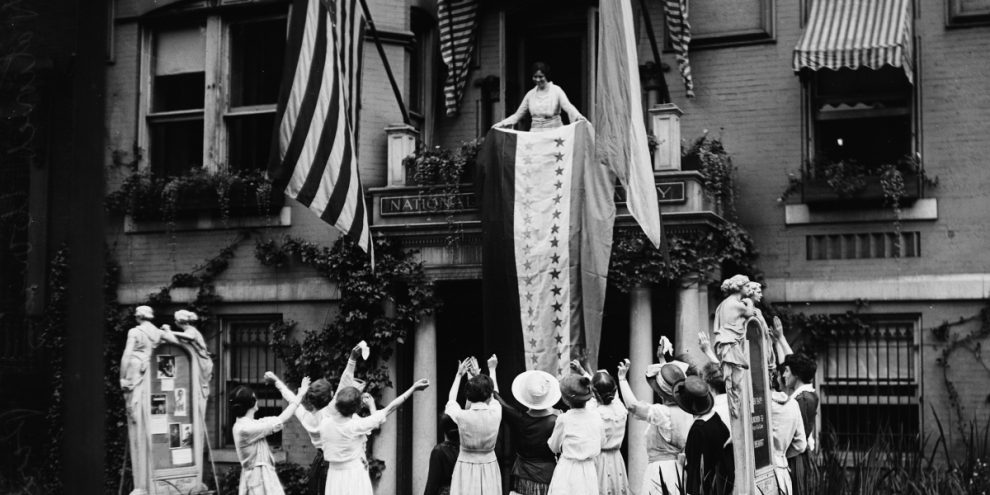

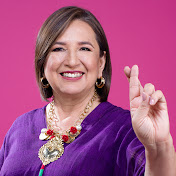
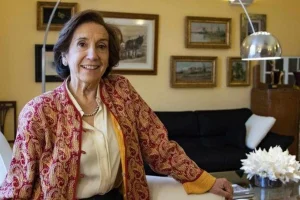

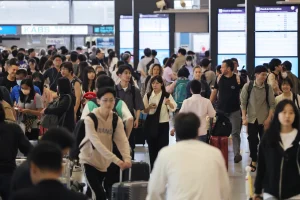





Comentarios